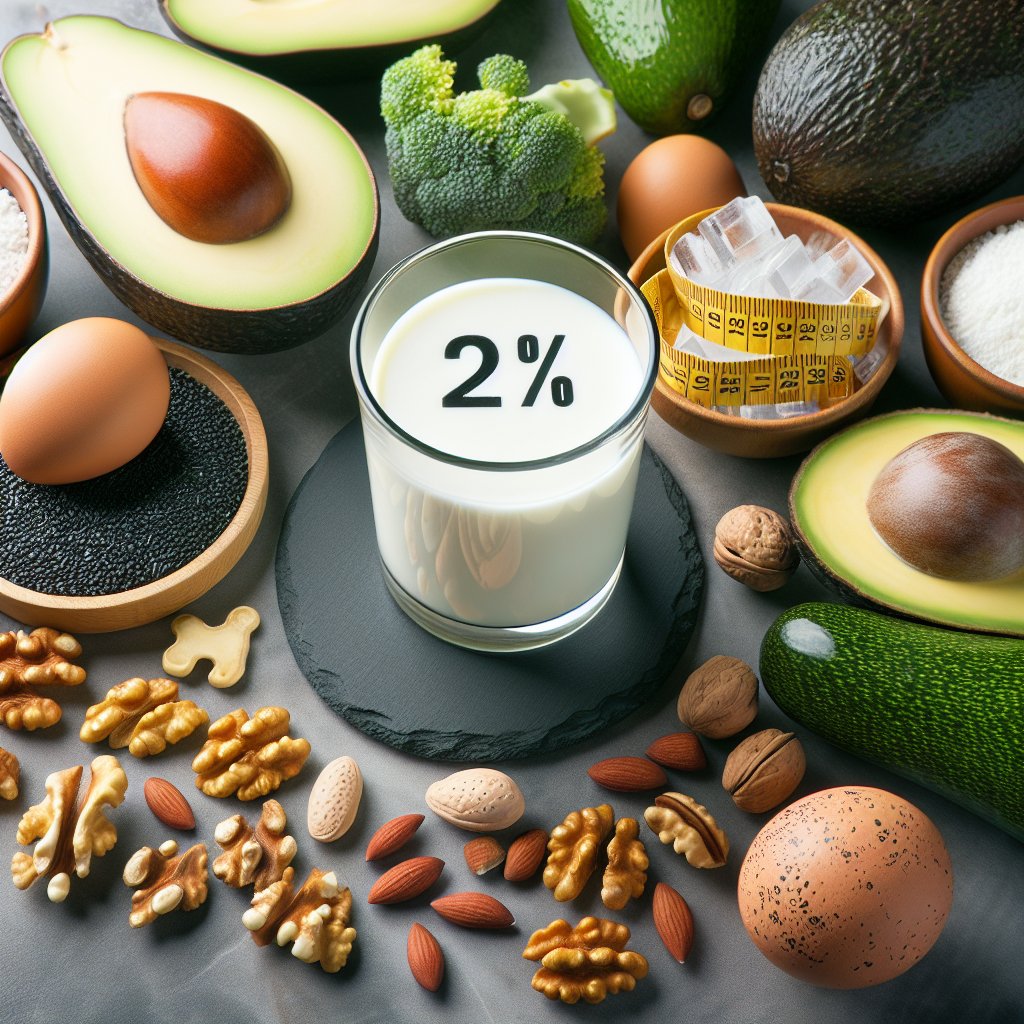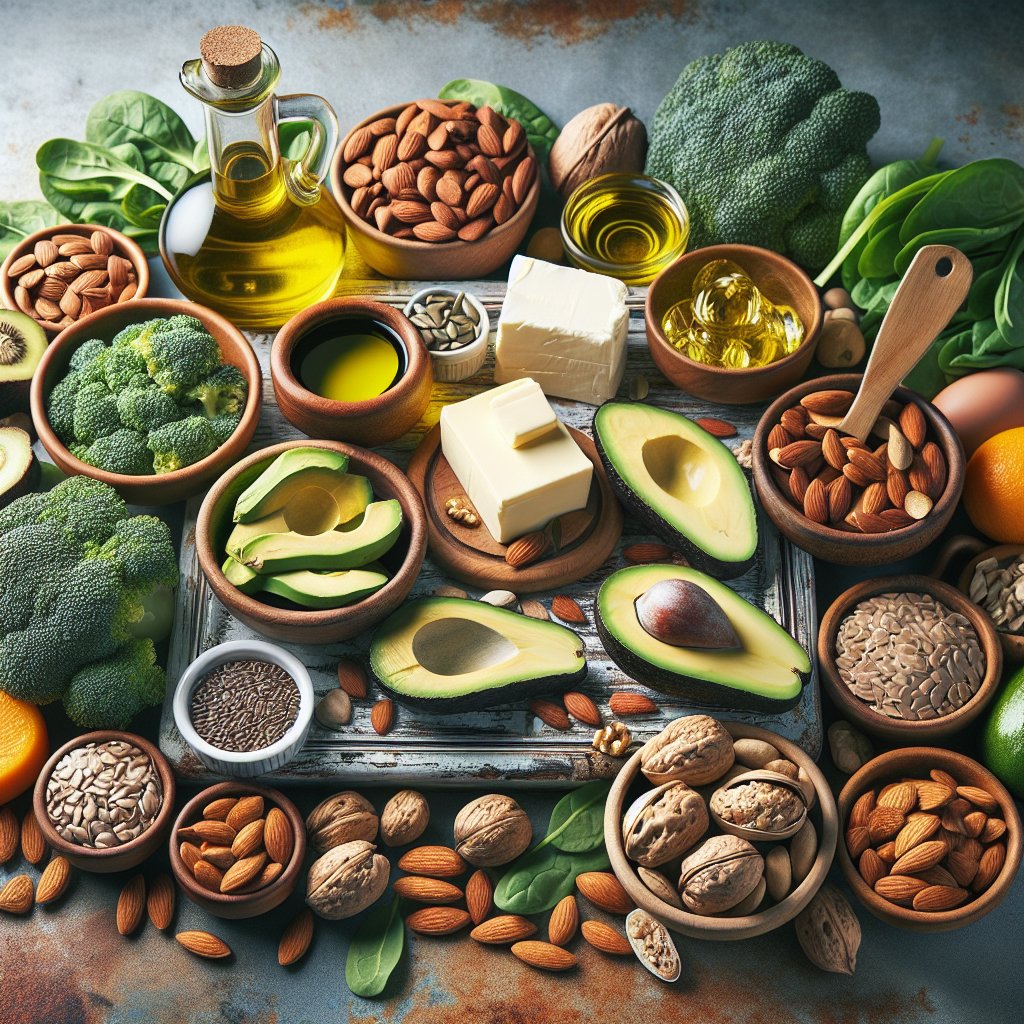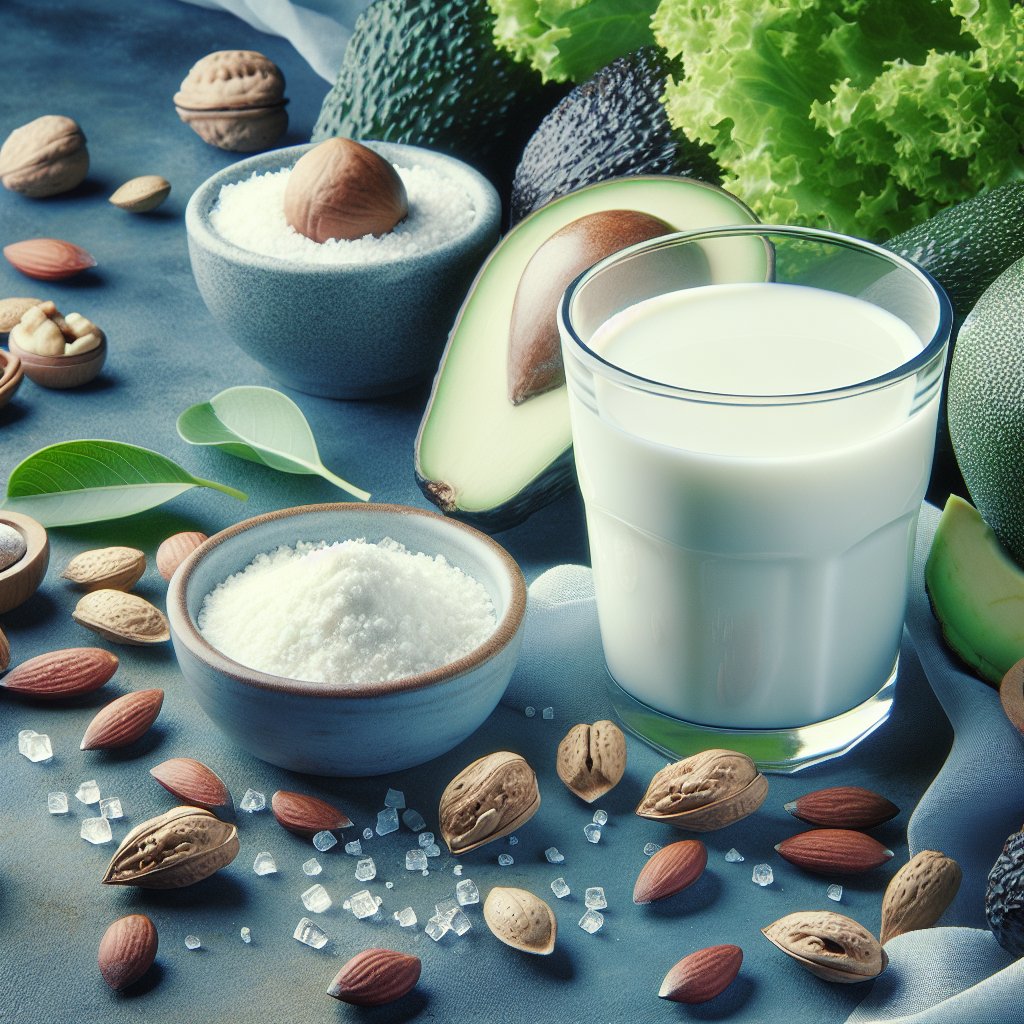Is 2% Milk Keto-Friendly? Find Out How It Impacts Ketosis and Your Diet!
Briefly Introducing the Ketogenic Diet and Milk Consumption Impact
Hey there, keto enthusiasts! Today, we’re diving into the world of ketogenic dieting and exploring the impact of 2% milk on ketosis. Whether you’re a seasoned keto veteran or just starting out on your low-carb journey, it’s essential to understand how different foods, like milk, can affect your body’s ability to achieve and maintain ketosis.
The ketogenic diet, often referred to as keto, is a low-carb, high-fat eating plan designed to help your body enter a state of ketosis. When in ketosis, your body becomes incredibly efficient at burning fat for energy, which can lead to weight loss and numerous other health benefits.
Now, when it comes to milk consumption on keto, particularly 2% milk, there are some important factors to consider. While milk is a staple in many households and can be a great source of essential nutrients, its carbohydrate content may impact ketosis. So, let’s take a closer look at how 2% milk specifically fits into the keto lifestyle and its potential effects on your diet and ketosis.

What is 2% Milk?
Alright, let’s start by breaking down what exactly 2% milk is all about. 2% milk refers to the fat content in the milk. Whole milk contains approximately 3.5-4% fat, while 2% milk contains, as the name suggests, 2% fat. This makes 2% milk a middle ground between whole milk and skim milk, which contains around 0.5% fat.
Now, why does this fat content matter? Well, the fat content in milk affects its flavor, texture, and nutritional composition. Whole milk is creamier and richer due to its higher fat content, while skim milk is much leaner. 2% milk strikes a balance, offering a lighter taste than whole milk and a bit more richness than skim milk.
In terms of the ketogenic diet, the fat content in milk is something that needs to be considered. With 2% milk, you’re getting a moderate amount of fat, which can be factored into your overall daily fat intake on a keto diet.
Research has shown that consuming full-fat dairy, such as whole milk, does not adversely affect heart disease risk and may even lower the risk of obesity. However, for individuals following a keto diet, 2% milk might be a preferable option as it contains less fat than whole milk and can be incorporated into a low-carb, high-fat diet more easily.
Understanding the differences in fat content among various types of milk is essential when making dietary choices, particularly when following a specific eating plan like the ketogenic diet. So, with the basics of 2% milk covered, let’s move on to understanding its impact on ketosis and the keto diet.
Ketogenic Diet Overview
Hey there, fellow keto enthusiasts! Let’s dive into the wonderful world of the ketogenic diet. The keto diet is all about embracing a high-fat, low-carbohydrate lifestyle. You see, when you drastically reduce your carb intake, your body enters a state called ketosis. In this state, your body becomes incredibly efficient at burning fat for energy, which can lead to some incredible health benefits.
Research has shown that the ketogenic diet can help with weight loss, improve blood sugar control, and enhance mental clarity. How amazing is that? To achieve ketosis, it’s essential to consume a high proportion of healthy fats, a moderate amount of protein, and a minimal amount of carbs. This unique macronutrient composition can be a game-changer when it comes to fueling your body in a whole new way.
By focusing on high-fat, low-carb foods, you can train your body to become a fat-burning machine. It’s like tapping into a secret energy source that’s been hidden in your body all along. So, get ready to embrace delicious avocados, nourishing nuts, and flavorful oils. When it comes to the keto lifestyle, the possibilities are truly endless!

Keto-Friendly Dairy Products
When it comes to the ketogenic diet, dairy can be a bit of a controversial topic. Some people believe that dairy should be completely avoided on a keto diet, while others enjoy including certain dairy products in their low-carb meal plans. The good news is that many dairy products can indeed be keto-friendly.
Dairy products that are typically considered keto-friendly include full-fat options such as heavy cream, full-fat Greek yogurt, butter, and certain cheeses like cheddar, mozzarella, and cream cheese. These products are low in carbohydrates and high in fat, making them suitable for a ketogenic diet.
Research has shown that incorporating full-fat dairy into a ketogenic diet can actually aid in weight loss and help improve overall body composition. A study published in the American Journal of Clinical Nutrition revealed that high-fat dairy consumption was inversely associated with obesity.
However, it’s important to be mindful of the carb content in certain dairy products. For example, milk, including 2% milk, contains lactose, a natural sugar, which can impact ketosis. While 2% milk can still be consumed in moderation on a keto diet, it’s essential to track the carb content to stay within your daily limit.
Is 2% Milk Keto-Friendly?
When it comes to the ketogenic diet, the primary goal is to keep your body in a state of ketosis, where it burns fat for fuel instead of carbohydrates. Many people wonder if 2% milk is suitable for the ketogenic diet, considering its fat and carbohydrate content.
2% milk contains approximately 12 grams of carbohydrates per 8-ounce serving, which is higher than other dairy options like heavy cream or full-fat yogurt. However, it’s lower in carbs compared to regular milk, which contains around 12-13 grams of carbohydrates per cup.
On the other hand, 2% milk has a moderate fat content, providing about 5 grams of fat per 8-ounce serving. While the fat content is not as high as that in whole milk, it still contributes to the overall calorie count.
Considering Carb and Fat Content
As a part of a well-planned ketogenic diet, 2% milk can be consumed in moderation. The key is to account for the carbohydrate content within your daily carb limit while ensuring that the fat content aligns with your overall macronutrient intake goals.
It’s essential to remember that individual tolerance to dairy products on a ketogenic diet can vary. Some people may be able to include 2% milk in their diets while maintaining ketosis, while others may find it affects their ketone levels.
In conclusion, while 2% milk can be included in a ketogenic diet, it’s important to monitor your overall carbohydrate and fat intake to ensure it aligns with your dietary goals and doesn’t hinder your ketosis.

Nutritional Value of 2% Milk
Before delving into whether 2% milk is keto-friendly or not, it’s essential to understand its nutritional profile.
2% milk is a popular choice for many due to its creamy texture and slightly lower fat content compared to whole milk. Let’s take a closer look at its nutritional values.
One cup (240ml) of 2% milk contains approximately 122 calories, 4.8g of fat, and 12g of carbohydrates. The fat content accounts for 30% of the total calories, while carbohydrates make up the remaining 40%. As for protein, 2% milk provides around 8g per cup.
It’s important to note that the carbohydrate content in milk primarily comes from lactose, a natural sugar present in dairy products. This sugar is a form of glucose, which can influence insulin levels in the body.
While 2% milk can fit into a keto diet depending on individual macro goals, its carbohydrate content should be taken into consideration, especially for those aiming to stay within a strict daily carb limit.
Impact of 2% Milk on Ketosis
Many individuals following a ketogenic diet wonder whether 2% milk is keto-friendly. Let’s delve into the science of how consuming 2% milk may affect ketosis and the body’s ability to stay in a state of ketosis.
First, it’s essential to understand that the ketogenic diet emphasizes high fat, moderate protein, and very low carbohydrate intake. This prompts the body to enter a state of ketosis, where it burns fat for fuel instead of carbohydrates.
So, where does 2% milk fit into this equation? Well, 2% milk contains a higher carbohydrate content compared to its higher fat counterparts, such as heavy cream or full-fat milk. The lactose, or milk sugar, in 2% milk can potentially elevate blood sugar levels, which may hinder the body’s ability to maintain ketosis.
Scientific research has shown that the consumption of higher lactose dairy products can lead to a more significant increase in insulin levels. Elevated insulin levels can inhibit the process of ketogenesis, where the liver produces ketones for energy from the breakdown of fats, thereby potentially impacting the body’s ability to stay in a state of ketosis.
It’s important to note that individual responses to 2% milk and its impact on ketosis may vary. Some individuals may be able to incorporate small amounts of 2% milk into their keto diet without being kicked out of ketosis, while others may find that even a small serving negatively affects their ketone levels.
Ultimately, for those strictly adhering to a ketogenic diet for therapeutic reasons, it may be advisable to choose lower lactose or lactose-free alternatives to 2% milk to better support the body’s ability to stay in ketosis.

Alternatives to 2% Milk
If you’re following a ketogenic diet, it’s essential to be mindful of the milk you consume. While 2% milk contains carbohydrates, individuals on a keto diet may want to consider alternative options. Luckily, there are several keto-friendly milk alternatives to consider:
Almond Milk
Almond milk is a popular choice for those following a ketogenic lifestyle. It is low in carbs and calories, making it an excellent option for individuals looking to minimize their carbohydrate intake. Additionally, almond milk is rich in vitamin E, which acts as a powerful antioxidant in the body.
Coconut Milk
Another fantastic alternative is coconut milk. Not only is it incredibly creamy and flavorful, but it is also low in carbohydrates, making it an ideal choice for keto enthusiasts. Coconut milk contains medium-chain triglycerides (MCTs), which have been shown to support ketone production in the body, thereby promoting ketosis.
When selecting an alternative milk, it’s important to choose unsweetened varieties to avoid unnecessary sugars, which can impact ketosis. Always check the labels to ensure the product is free from added sugars and unwanted additives.
Experimenting with different milk alternatives can add variety to your keto diet while ensuring you stay on track with your health goals. Whether you choose almond, coconut, or another keto-friendly milk, these alternatives can be excellent additions to your ketogenic lifestyle.
Conclusion
After diving into the impact of 2% milk on ketosis and the overall keto diet, it’s evident that the answer to the question “Is 2% milk keto-friendly?” is not a simple yes or no. While 2% milk contains some naturally occurring sugar, it can still fit into a keto diet, especially in moderation. The key lies in managing your overall carbohydrate intake and ensuring that 2% milk fits within your daily carb limit.
Recent studies have shown that the protein and fat content in 2% milk provide essential nutrients that can support ketosis and provide valuable energy. Additionally, the potential benefits to bone health and muscle maintenance cannot be overlooked.
However, it’s important to be mindful of portion sizes and keep track of your carb intake from other sources when incorporating 2% milk into your keto lifestyle. Individual responses to dairy can vary, so listening to your body’s cues is crucial.
Ultimately, with proper planning and moderation, 2% milk can be part of a keto-friendly diet, allowing you to enjoy its nutritional benefits while staying in ketosis.


